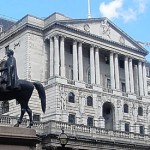 The Bank of England has warned that the risks it identified to financial stability as a result of a Brexit vote have “begun to crystallise”.
The Bank of England has warned that the risks it identified to financial stability as a result of a Brexit vote have “begun to crystallise”.
Bank of England Governor Mark Carney said: “In particular, there is growing evidence that uncertainty about the referendum has delayed major economic decisions, such as business investment, construction and housing market activity.”
The Bank’s Financial Policy Committee said it would ease its capital lending rules for banks to pump £150 million into the economy to help offset Brexit risks.
Carney said: “The FPC is supporting the real economy by ensuring that banks can use the substantial capital and liquidity buffers they have in place.”
The FPC said in its monthly report that the current outlook for UK financial stability was “challenging”.
It is closely monitoring the risks of further decline in investor appetite for UK assets, the commercial real estate market and the buy-to-let sector.
The BoE has warned that the buy-to-let market is a potential threat to the UK’s economic recovery and that borrowers could be exposed following a downturn, which could hit the wider housing market and economy.
Talking about whether it was a good time to borrow money, Carney advised households to be “prudent”.
“If you are taking out a mortgage, at some stage, during the life of that mortgage, conditions will be difficult.
“So you want to be sure, as a household or an individual that you can repay that mortgage. You don’t want to lose your house or flat.”
Speaking to business leaders last week, Carney said that a declining economic outlook could lead to the bank pumping more money into the economy through quantitative easing.
Carney suggested that a cut in interest rates was possible by the Bank this summer to deal with the economic uncertainty following the vote to leave the EU.
Some analysts believe that interest rates could drop from their historic low of 0.50% to 0.25% as early as next week.
Calum Bennie, savings expert at Scottish Friendly, said: “Today’s announcement that the Bank of England has eased capital restrictions for banks is not the good news it may appear to be for consumers.
“The introduction of more credit to consumers will only increase household debt by encouraging people to buy goods and services they can’t really afford, especially at a time when the next move in interest rates is uncertain. Indeed, the Bank of England even today highlighted the high level of debt among consumers and the vulnerability they face from borrowing costs as a concern.
“With the pound continuing to drop in value we may see inflation begin to rise with foreign goods becoming more and more expensive to import. This, along with increased lending, could be a double blow for households as the cost of living looks set to rise in the near future.
“Consumers already feel concerned about their debts, but with a future of continued loose monetary policy, and the possibility of recession, it is important that they have savings put aside, rather than spend unnecessarily.”







